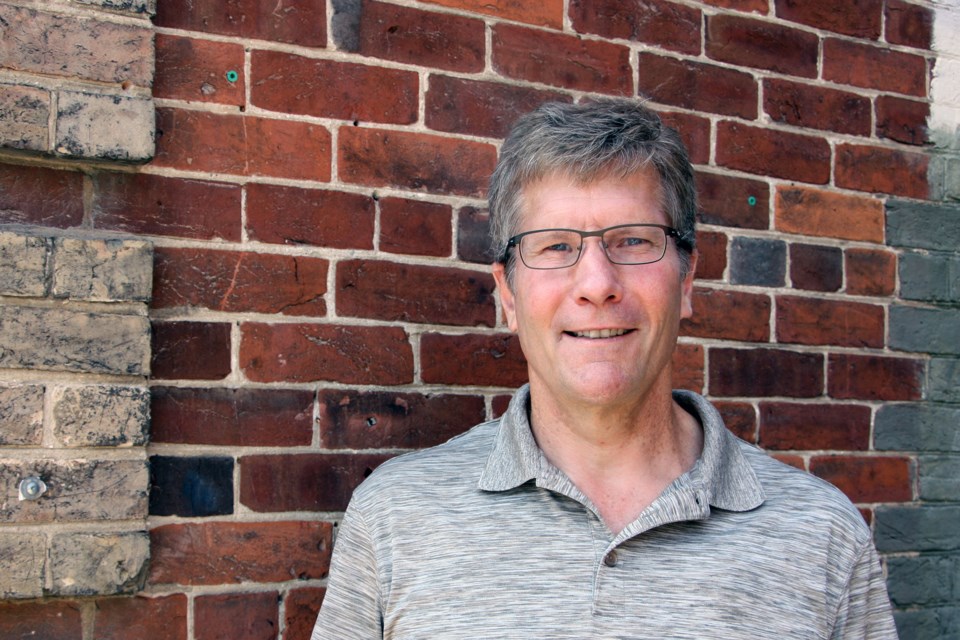Collingwood council is considering a change to a policy passed last year that directed all media questions related to the judicial inquiry and other “significant matters” to the town's Chief Administrative Officer (CAO).
The change suggests adding the mayor as a spokesperson. However, the mayor has already given a high-profile interview about the inquiry - before any changes have been voted on.
A motion passed unanimously in July, 2018, stated questions related to the judicial inquiry or other “high profile matters” be referred to and addressed by the CAO.
However, a CBC article published in April quotes Mayor Brian Saunderson giving his opinions on the inquiry.
Saunderson confirmed he gave the interview and said he spoke with CAO Fareed Amin before giving the interview.
The article contains a quote attributed to Saunderson in which he said the inquiry “paints a picture, which is yet to be proven, of a very flawed process that ended up in a deal that brought a subpar return for our taxpayers and will continue to haunt taxpayers for years to come.”
Saunderson said he remembered giving that quote to the CBC reporter.
The inquiry is in its first phase of three for public hearings.
Inquiry counsel has released one foundation document containing information gathered from various sources on the 50 per cent sale of Collus to PowerStream in 2012.
The inquiry document states several times the information has not been tested. Hearings began April 15. The article including Saunderson’s interview was posted the day the hearings began.
Saunderson said he did qualify in his statement nothing has been proven yet.
“It would certainly be up to Justice [Frank] Marrocco,” said Saunderson. “The Foundation Document certainly painted a process that I think is flawed. So far the testimony of those involved in that council support it.”
To date, the former council members who have testified include Sandra Cooper (former mayor), Rick Lloyd (former deputy mayor), and Ian Chadwick (former councillor).
Each of those former members of council included, in some way, in their testimony they were satisfied with the process and believed Collingwood received a good deal in the sale.
“Certainly I was asked a question and I responded to the question,” said Saunderson. “[My statement] was not inappropriate or one that would mislead the public.”
As for the policy in place stating questions about the inquiry were to be directed to the CAO, Saunderson said he felt it was important to respond to the CBC’s request for an interview.
“With the exception of the motion from last summer, it’s always been the role of the mayor to be the spokesperson for the town,” said Saunderson, referencing the municipal act. “I felt the reasons for having the bylaw in the first place weren’t necessarily applicable.”
Specifically, Saunderson said there was “a feeling of mixed messaging coming from council on a number of different issues, particularly the hospital and the judicial inquiry,” during the last term of council.
A notice of motion delivered by Councillor Kathy Jeffery at the last council meeting on April 29, proposes any questions related to the inquiry or other high-profile matters be referred to and addressed by the mayor in consultation with the CAO.
It further proposes the Deputy Mayor stepping in where the mayor is unavailable, and the CAO answering questions in their absence.
Jeffery said the policy of directing questions to the CAO was “reasonable during the election period,” but she found out it was still in effect, which prompted her to propose the change.
“We have outstanding council leadership who are quite capable of addressing the facts and representing the will of the majority of council regarding the high profile, or any, matters of council during this term of office,” said Jeffery in an email.
Coun. Bob Madigan originally proposed the policy in June 2018.
“At the time, I wanted to depoliticize events,” said Madigan in an interview with CollingwoodToday. “I wanted to make it a level playing field so facts and only facts could get out there.”
He acknowledged the office of the mayor, under the Municipal Act, is the spokesperson for council.
“I felt a lot of misinformation was getting out, and my sole interest was to protect the citizens of Collingwood from being ill-informed,” said Madigan. “I have no issue with the office of the mayor being the spokesperson for the town. But, sometimes, if it isn’t broke, don’t fix it. The information is getting out now.”
He added sometimes another voice is “confusing.”
Amin confirmed Saunderson reached out to him before giving the interview.
Regarding the policy to direct questions about the inquiry to the CAO, Amin said it shouldn’t preclude any member of council from saying something.
He said the policy intended for issues that “straddled the organization” – meaning town and council business – the CAO would be the point of contact.
“The interest here is not to prevent elected officials from interacting with the media,” said Amin. “I think it’s part of their role, and what they should be doing … From my perspective, I want to make sure we’re not compromising the town’s position by saying anything inappropriate or pre-emptive.”
At the time of the Collingwood Regional Airport sale, CollingwoodToday reached out to every member on council, and those who did reply stated the questions should be directed to the CAO. Some referred to the motion passed on July 12 when redirecting questions.
Amin said the airport sale was a sensitive issue requiring some confidentiality to protect the integrity of the transaction for the town and the purchaser.
Jeffery's motion to change the policy is on the council agenda for May 13.
